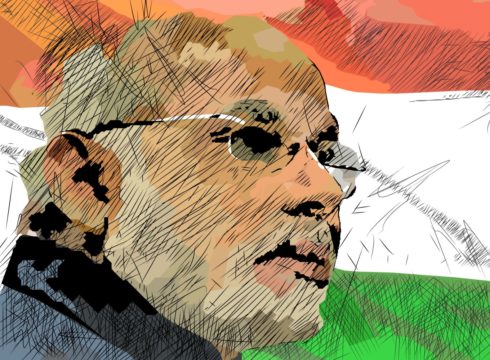SUMMARY
The Startup India scheme has played a significant role in galvanising entrepreneurial spirit and easing the compliance burden faced by startups in India
The new Seed Startup Fund of INR 20K Cr should dedicate at least 25% of its corpus towards credit lines for Indian startups
If Silicon Valley created the digital ecosystem of the first billion people, India can create it for the remaining 6 Bn people worldwide
Inc42 Daily Brief
Stay Ahead With Daily News & Analysis on India’s Tech & Startup Economy
With over 350 seats estimated for the BJP party, Prime Minister Narendra Modi is poised to make history as the third Prime Minister in Indian history to come back for a second term with the majority mandate. The markets rejoiced at this news, with the SENSEX soaring past 40,000 and the NIFTY breaching 12,000; news anchors and psephologists dissected every single moment from the lead up to this and entrepreneurs who are eagerly awaiting the next iteration of Startup India. There can be no doubt that Modi is the startup Prime Minister of India.
India has seen the rise of over 40,000 startups who have created more than $130 Bn of value from January 2014 to September 2018. With around 27 unicorns (billion-dollar startups), India is the third largest startup ecosystem in the world in terms of value and numbers, behind China and the US. The Startup India scheme has played a significant role in galvanising entrepreneurial spirit and easing the compliance burden faced by startups in India. Never before have so many governments, regulators and corporates crafted specific initiatives around early-stage businesses.
The Angel Tax, the bete noire of all entrepreneurs, was finally quelled with notifications from DPIIT and CBDT providing much-needed relief to startups and investors in India. The ability to start a business within 2 days, raise capital from India and overseas, lower cost of IP protection, amongst others, have made it easier than ever to start a business in India.
But these initiatives were centred around reducing the existing compliance burden. What the next iteration of Startup India requires is specific policies geared towards making our startups globally competitive.
We’ve witnessed the rise of global Indian startups – with OYO gaining ground in China and Japan and Ola beginning operations in London and Australia. But to ensure that these become the norm and not the exception, India needs changes to the existing FEMA framework to allow smaller startups to start accessing global markets in a more efficient manner. The ability to send and receive money, create foreign vehicles and joint ventures and raise foreign debt with lower interest rates are crucial ingredients for this.
Even with access to capital and credit, Indian entrepreneurs always need to rely on equity – the costliest form of capital, to finance their operations. Access to credit will be imperative as consecutive and frequent capital raises dilute founders to single digit holdings within a few years. The new Seed Startup Fund of INR 20,000 Cr should dedicate at least 25% of its corpus towards credit lines for Indian startups.
In order to galvanise domestic pools of capitals, incentives along the lines of the SEIS scheme in the UK need to be implemented with tax credits for domestic investors. Even the capital gains rate needs to be rationalised to 10% along the lines of the sale of listed shares. Since startup shares are illiquid and significantly riskier, this will go a great way in increasing domestic participation in the Indian startup story. No startup ecosystem has succeeded without deep domestic participation. Over 90% of all funding into Indian startups comes from non-domestic sources and this needs to be reversed.
Other structural issues such as ESOP taxation, which is unfairly geared against startup employees, needs to be revised. Dual-voting shares, stock to advisors, operational clarifications to the angel tax circular, simplified listing procedures are amongst other policies startups await this term.
Many of the policy statements outlined in the BJP manifesto can be fulfilled by domestic startups – the marriage of agriculture and artificial intelligence, survey and land-mapping technology, tackling cybercrime, making healthcare more accessible, are already problems which Indian startups are addressing. Even the India Stack, whose elements of Aadhaar, UPI, Digilocker, etc. are gaining traction from several emerging market countries the world over. If Silicon Valley created the digital ecosystem of the first billion people, India can create it for the remaining 6 Bn people worldwide.
From the ramparts of the Red Fort in 2016, Prime Minister Modi bought startups to the national forefront when he declared that —
Hindustan mein koi aisa zila na ho, aisa block na ho jahan koi startup na shuru ho. Start up India, Stand Up India.
Now, Indian startups eagerly await what their most prominent supporter “— the startup Prime Minister — will do next for them.
Note: We at Inc42 take our ethics very seriously. More information about it can be found here.


